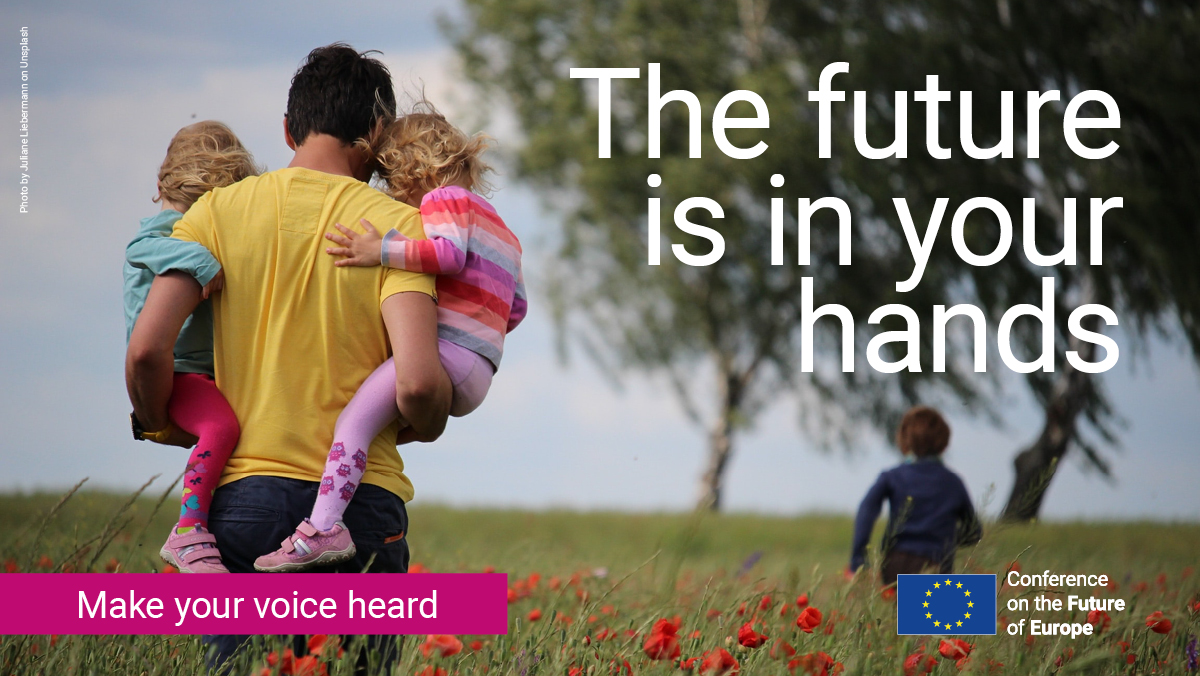Conference on the Future of Europe
The Conference on the Future of Europe is a unique and timely opportunity for European citizens to debate on Europe’s challenges and priorities. No matter where you are from or what you do, this is the place to think about what future you want for the European Union.
The Conference’s overall objective through the next 12 months is to empower citizens and civil society to deliberate and have a greater say on shaping the Europe they want, the EU policies and their future. The conference will develop around the following main elements:
- Multilingual digital platform – will be the place for citizens to share ideas and send online submissions. They will be collected, analysed and published throughout the Conference;
- Decentralised events – online, in-person and hybrid events held by people and organisations as well as national, regional and local authorities across Europe;
- European citizens’ panels – will discuss different topics, based on the input provided by citizens through the digital platform. These panels will be representative in terms of geographic origin, gender, age, socioeconomic background and/or level of education;
- Conference Plenaries – will ensure that the recommendations from the national and European citizens’ panels, grouped by themes, are debated without a predetermined outcome and without limiting the scope to pre-defined policy areas.
The digital platform provides a public space to contribute with views and proposals on any of the nine topics suggested and also add their own to a 10th “open” topic.
The 10 topics for discussion are the following:
- Climate change and environment
- Health
- A stronger economy, social justice and jobs
- EU in the world
- Values and rights, rule of law, security
- Digital transformation
- European democracy
- Migration
- Education, Culture, Youth and Sport
- Other ideas
More concretely, there are three ways of concrete to contribute through the platform:
a) share your ideas and proposals, endorse and comment on other people ideas;
b) organise a participative and inclusive event (by definition, all the events you will be organising throughout the project) and report back with ideas from the event. This is because the ideas/proposals for the events will be taken into account in the analysis and feedback mechanism afterwards.
c) browse a map of all registered events and attend an event or look at other people’s ideas and comments



